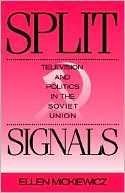Category Books
- Fiction Books & Literature
- Graphic Novels
- Horror
- Mystery & Crime
- Poetry
- Romance Books
- Science Fiction & Fantasy
- Thrillers
- Westerns
- Ages 0-2
- Ages 3-5
- Ages 6-8
- Ages 9-12
- Teens
- Children's Books
- African Americans
- Antiques & Collectibles
- Art, Architecture & Photography
- Bibles & Bible Studies
- Biography
- Business Books
- Christianity
- Computer Books & Technology Books
- Cookbooks, Food & Wine
- Crafts & Hobbies Books
- Education & Teaching
- Engineering
- Entertainment
- Foreign Languages
- Game Books
- Gay & Lesbian
- Health Books, Diet & Fitness Books
- History
- Home & Garden
- Humor Books
- Judaism & Judaica
- Law
- Medical Books
- New Age & Spirituality
- Nonfiction
- Parenting & Family
- Pets
- Philosophy
- Political Books & Current Events Books
- Psychology & Psychotherapy
- Reference
- Religion Books
- Science & Nature
- Self Improvement
- Sex & Relationships
- Social Sciences
- Sports & Adventure
- Study Guides & Test Prep
- Travel
- True Crime
- Weddings
- Women's Studies
Split Signals: Television and Politics in the Soviet Union » (New Edition)

Authors: Ellen P. Mickiewicz
ISBN-13: 9780195063196, ISBN-10: 0195063198
Format: Paperback
Publisher: Oxford University Press, USA
Date Published: May 1990
Edition: New Edition
Author Biography: Ellen P. Mickiewicz
About the Author:
Ellen Mickiewicz is Alben W. Barkley Professor of Political Science at Emory University and Director of the Soviet Media and International Communications Program at The Carter Center. The current president of the American Association for the Advancement of Slavic Studies and the editor of the journal Soviet Union, she is the author of Media and the Russian Public, has contributed articles to Slavic Review, Journal of Communication, Public Opinion Quarterly, and The New York Times, and has appeared on The CBS Evening News as an expert commentator.
Book Synopsis
Television has changed dramatically in the Soviet Union. In 1960, only five percent of the population had access to TV, but by 1986, fully 93 percent were viewers, across a vast land mass stretching over eleven time zones. It is now the main source of information in the USSR, and as Ellen Mickiewicz points out, television has become Mikhail Gorbachev's most powerful instrument to pave the way for change in the economy, the political system, the educational system—in short, in the way that the Soviet people relate to society and the state.
In this wide-ranging, vividly written volume, Mickiewicz compares over 100 hours of Soviet and American television, covering programs broadcast during both the Chernenko and Gorbachev governments. She describes the enormous popularity of news programs—the main such broadcast, Vremya (Time), is watched by 150 million viewers nightly, or over 80 percent of the adult population—and discusses how Soviet jounalists work in the United States, how they understand us, what sources they rely on, and what they think of our coverage of them. Mickiewicz offers a fascinating description of the world seen on Soviet TV. For instance, Soviet viewers see much more international news than American viewers, and this news tends to focus on the West, with less coverage of Communist Bloc countries and the Third World. Political violence and protest marches dominate the news, stressing capitalist unrest and the overall responsibility of the United States. But perhaps most interesting are the changes in programming that have occured with Gorbachev's policy of glasnost: youth programs such as 12th Floor in which high-schoolers confront government and party officials, no-holds-barred debates between American critics of Soviet policies and Soviet television personalities, and even "trial by television" of bureaucrats and managers.
The first in-depth look at Soviet television, Split Signals is an eye-opening account spiced with interviews with major Soviet and American media figures and fascinating descriptions of Soviet TV shows. It will interest anyone curious about the USSR or the impact of television on society.
Table of Contents
Subjects
 Media
Media  Journalism
JournalismEntertainment
 Television
Television  Television Broadcasting - Political Aspects
Television Broadcasting - Political AspectsEntertainment
 Television
Television  Television Broadcasting - Social Aspects
Television Broadcasting - Social AspectsEntertainment
 Television
Television  Television News Programs
Television News ProgramsHistory
 Asian History
Asian History  Russian & Soviet History
Russian & Soviet HistoryHistory
 European History
European History  Russian & Soviet History
Russian & Soviet HistoryHistory
 Political History
Political History  Political Theory & Ideology
Political Theory & IdeologyHistory
 Political History
Political History  World Politics
World PoliticsNonfiction
 Social Sciences
Social Sciences  Media & Communications
Media & CommunicationsPolitical Books & Current Events Books
 World Politics
World Politics  Europe - Politics & Government
Europe - Politics & GovernmentPolitical Books & Current Events Books
 All Politics
All Politics  Political Theory & Ideology
Political Theory & IdeologyPolitical Books & Current Events Books
 All Politics
All Politics  World Politics
World PoliticsScience & Nature
 Social Sciences
Social Sciences  Media & Communications
Media & CommunicationsSocial Sciences
 Media & Communications
Media & Communications  Journalism
JournalismNonfiction
 Entertainment
Entertainment  Media
MediaNonfiction
 Entertainment
Entertainment  Television
TelevisionNonfiction
 History
History  Asian History
Asian HistoryNonfiction
 History
History  European History
European HistoryNonfiction
 History
History  Political History
Political HistoryNonfiction
 Politics & Current Affairs
Politics & Current Affairs  World Politics
World PoliticsNonfiction
 Politics & Current Affairs
Politics & Current Affairs  All Politics
All Politics
